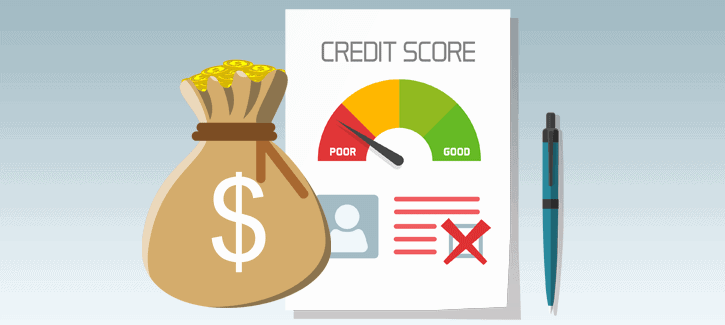If you miss payments on an account in your name, the creditor might report the delinquency after a few months. After some time of that delinquency going unpaid, the creditor might begin collections actions or sell the debt to a company that specializes in this area. Not only are collections efforts an uncomfortable disruption to your life, but they can have a negative impact on your credit score.
How Do Collections Affect Your Credit Score
If you need to rent a new home or make a big purchase, you might worry about credit score collections. Sure, it remains on your report for seven years, but how does it impact your overall credit score? The bad news is that even one collections action can take your credit from good to bad very quickly. The fewer total accounts you have and the newer your credit history is, the worse the impact tends to be.
The good news is that some scoring models pay closer attention to the balance owed than the mere presence of a derogatory remark. If the balance on the account totals less than $100, FICO 8 and 9 scoring models might ignore the collections actions even when currently unpaid. If you pay off the account that went into collections, scoring models VantageScore 3.0, VantageScore 4.0 and FICO 9 might not count it against you.
When it comes to balances greater than $100, especially those that remain unpaid, they have a far greater impact on your credit score based on FICO 8 scoring models and older. Unfortunately, these are the scoring models still in use by most financial institutions. Under these scoring models, you could see a significant decline in your credit score.
How To Remove Collections From Your Credit Report
How to remove a collections remark from your credit score might ultimately come down to how it got there. For instance, was it identity theft? Did the lender make a mistake or is it a legitimate debt?
1. Negotiate a Debt Delete
Creditors often report delinquencies as soon as possible to scare people into paying it off before it moves into collections status. Sometimes, you can negotiate to have them no longer report the delinquency to your credit report by paying off the debt or offering a settlement.
2. Give Legitimate Debts Time
As mentioned before, it takes years for accounts that go into collections to fall off your credit report. The seven-year timespan starts at the date of the first delinquency. Once this time passes, follow up with credit bureaus to ensure it falls off your report.
3. Query Inaccurate Debts
If the debt does not belong to you, dispute it. If you can prove you did not open the account that went into delinquency, you might clear your name. Unfortunately, if you opened an account and voluntarily gave someone access who then left bills unpaid, you might remain liable for this.
What You Can Do To Protect Your Credit Score
Naturally, the best way consumers can protect credit scores from collections actions is to pay all bills in full and on time. However, this alone does not account for all the many instances that lead to collections, many of which are outside of a person’s control.
1. Monitor Credit Report
If someone steals your personal information, they can use it to create accounts and leave them unpaid. You might only become aware of these new accounts when they become delinquent. Choose a credit alert system so you receive immediate notification for each new account opened. Verify each notification you receive, even if you think you know where it came from.
2. Freeze Credit
If you suspect your personal information has become compromised or you just want to be proactive, you can freeze your credit. This way, lenders need your express authorization to add new accounts tied to your name and your Social Security number. If you do not plan to open any new accounts anytime soon, this is a great option.
3. Restrict Access
Think carefully about who has access to your accounts and why. For instance, think twice about opening a phone line for someone else in your name or co-signing on a car loan for someone else. Similarly, if you are going through a divorce, think carefully about how to negotiate joint accounts.
4. Add More Accounts
Delinquent accounts look especially bad on brand-new credit history and with few other accounts in good standing. Opening new accounts and keeping these in good standing might help to dilute the effect of the current collections actions over time. You can do this by asking someone to add you to an existing account or purchase tradelines.
How We Can Help You
We provide tradelines that help customers like you to boost their credit score quickly and easily. Tradelines not only provide more accounts in good standing but might even add a few years to your credit history. Complete our quick assessment to get started.


